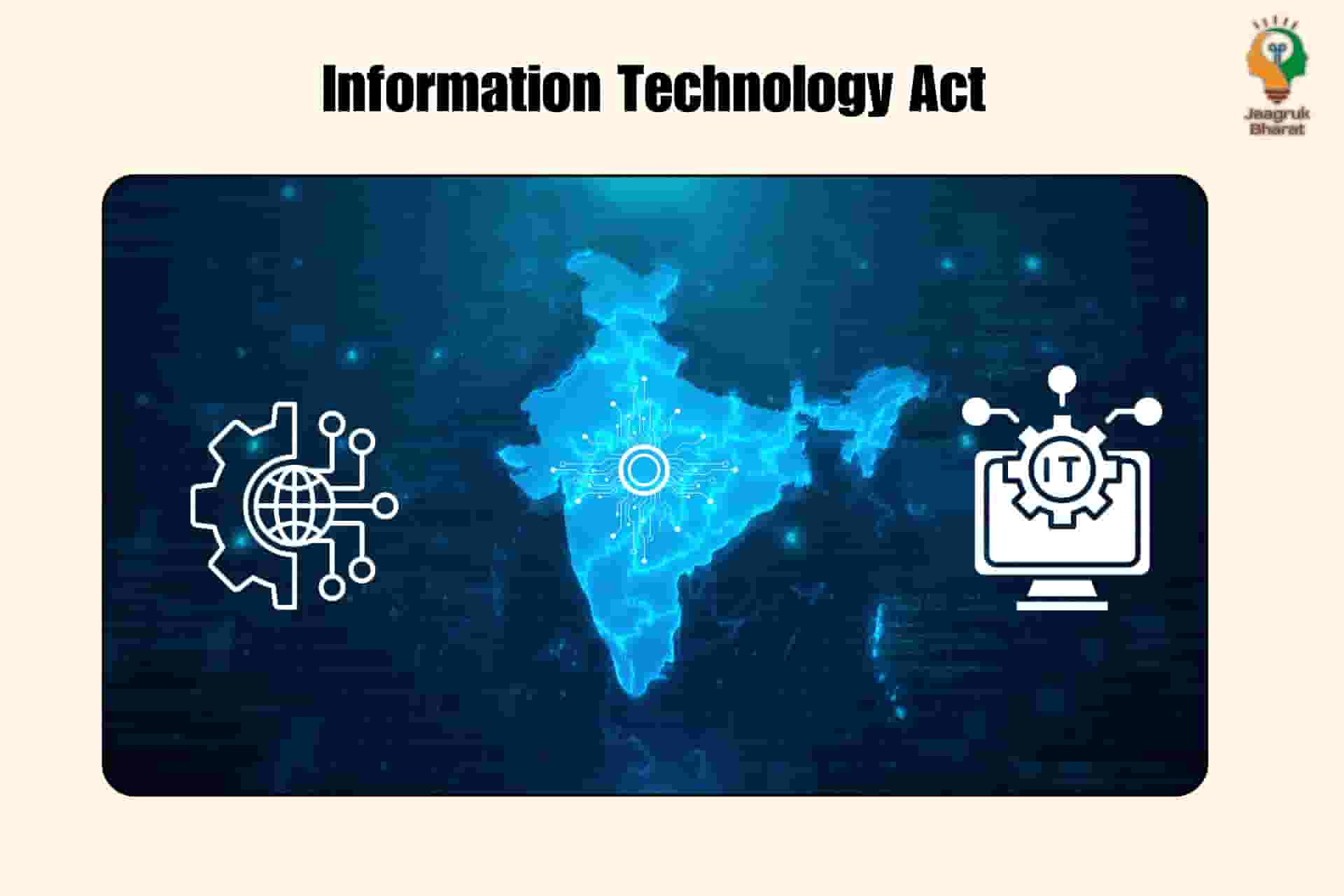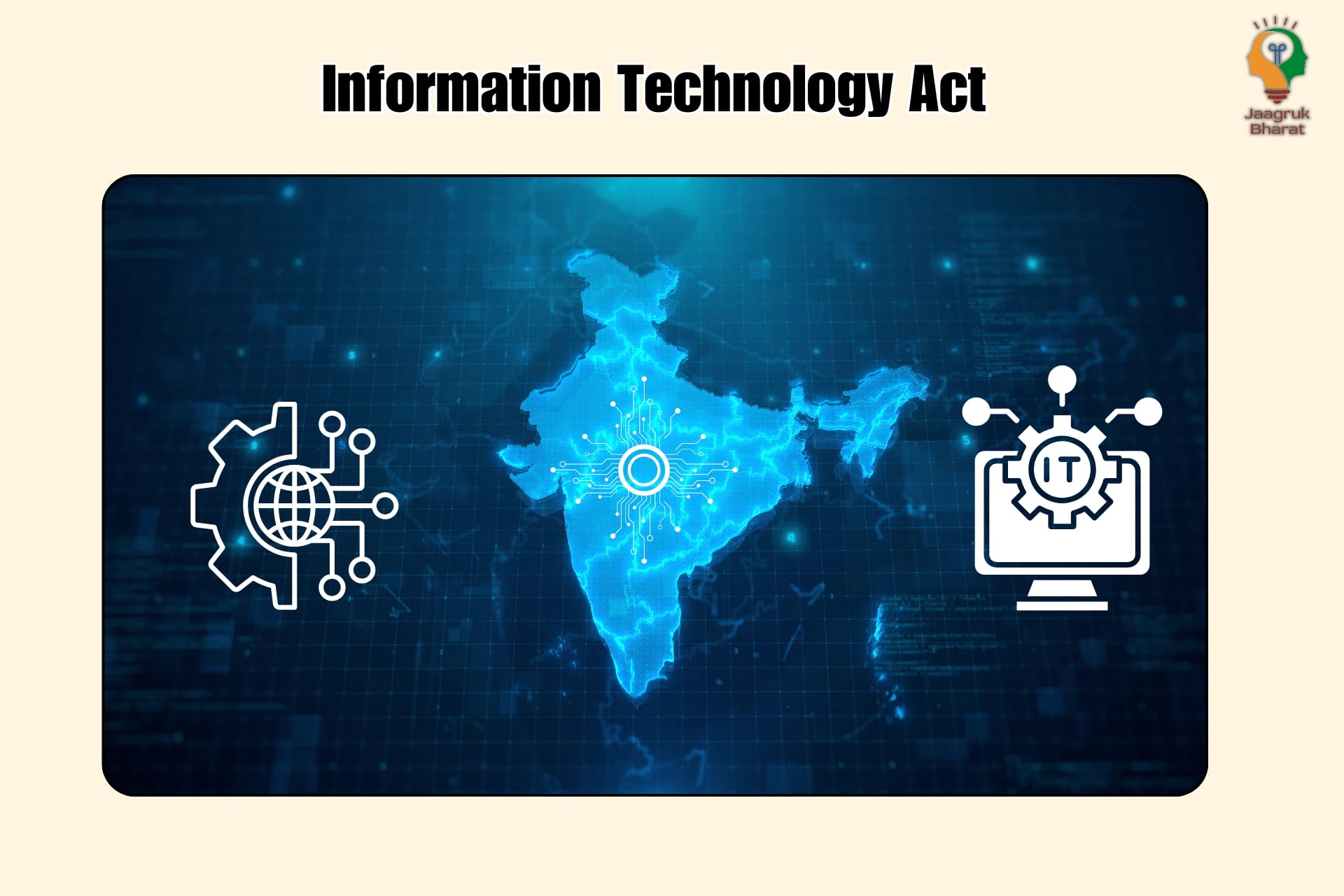Overview Of The Information Technology Act: What You Need To Know?
Updated: 12-10-2025 at 6:48 PM
2k


The Information Technology Act of 2000 of India is one of the most important legislations in the country governing e-governance, digital signatures and cyber crimes. The act was made by the Indian Parliament on 9th June 2000 and it came into force on October 17th, 2000. Therefore, this law acts as a bedrock for monitoring e-crimes as well as ensuring the safety of online transactions thus making it an integral part of India’s digital infrastructure development.
Read More: Chakshu Portal: A New Government Tool To Report Fraudulent Calls And SMS
Key Amendments To The IT Act, 2000 And Their Impact
Various changes have been made to the Information Technology Act since its enactment, in response to changes in the digital platform.
One notable revision was affected in 2008 which introduced Section 66A which penalises individuals who send “offensive messages” through electronic means. Nonetheless, this clause was found to be unconstitutional and hence it was nullified by the Supreme Court of India in 2015.
Another significant inclusion is Section 69 where all relevant security agencies can access or intercept information from any computer-based system for reasons relating to national security.
India And The 2000 IT Act: A Regulating Cybercrime And Electronic Commerce
The 2000 IT Act has a section that deals with different kinds of cybercrime such as hacking, identity theft, and cyber-terrorism.
Moreover, it establishes a legal foundation for e-commerce by recognising electronic records and digital signatures as legally valid documents.
Consequently, e-commerce in India has thrived since this time because anyone can enforce it legally through electronic contracts and transactions.
Read More: The Indian Government's New Powers To Control Telecom Networks In Emergencies
Understanding The Repeal of Section 66A IT Act
The primary purpose of enacting section 66A of the IT Act was to control irregularities linked to electronic communication in particular on social media. Regardless, the clause was ambiguous permitting its misapplication by those in power to curtail freedom of speech and expression. Consequently, several cases were filed against this section of law which eventually resulted in the Supreme Court’s decision to invalidate it as it violated Article 19(1)(a) – Freedom of Speech and Expression under the Indian Constitution.
Role Of The IT Act In Regulating Digital Signatures And Electronic Records In India
The IT Act, which came into force in 2000, had as one of its core purposes, the bestowing of legal responsibility upon digital signatures and electronic records. Notably, this marked a significant step in the modernisation of legal infrastructure in India that enables individuals and companies to engage in secure transactions electronically.
Moreover, it created an office called Controller of Certifying Authorities whose primary task was to oversee the issuance of digital signatures with integrity and authenticity.
Read More: Multiple SIM Users, Beware! The Government Is Coming After You With The New Telecom Act Of 2023
Impact Of The IT Act, 2000 On Data Privacy And Protection In India
Data privacy and protection have become more important in the digital age with the amendments to the Information Technology Act that have instituted very strict measures against personal data.
For instance, in 2011 an amendment was made to require companies to obtain an individual’s consent before collecting their data, and this improved the security of users’ information. However, these rules were widely criticised for being too harsh, particularly by enterprises trading within the IT outsourcing industry.
Legal Consequences Of Hacking Under The IT Act, 2000
Hacking, under the IT Act, 2000, as per section 66 is a grave crime with an imprisonment term of not more than three years and/ or a fine of five hundred thousand rupees. All forms of hacking are covered under these legal provisions that range from unauthorised entry to data theft; hence making those who breach cyber security responsible.
Read More: PM WANI Wi-Fi Scheme, Plan & Price | Get Free Wi-FI Wherever You Go With PM-WANI
Analysis Of The Penalties For Cybercrime Under The Information Technology Act
To maintain law and order in cyberspace, the IT Act 2000 lays down different punishments for cybercrimes. As an example, under Section 67 of this law, it is a crime to send pornography online and if found guilty, one can be jailed for up to five years plus fined a maximum amount of ten lakh rupees on both counts.
The legislation is designed such that those who misuse technology get hard consequences, which in turn becomes a warning to others on how dangerous it can be.
Why Section 69A Is Important For Banning Mobile Apps Through The IT Act?
Indian authorities have the power as per section 69A of the Information Technology Act to restrict access to content on grounds of national security.
TikTok was among several Chinese applications banned on data security and independence grounds under the provision. Through Section 69A, the government declares its determination to safeguard the country from potential cyber-attacks.
Read More: Multiple SIM Users, Beware! The Government Is Coming After You With The New Telecom Act Of 2023
Conclusion
The digital landscape in India has been significantly influenced by the Information Technology Act. Through the regulation of cybercrimes and legal recognition of electronic records, the IT Act, as it is commonly referred to, plays a key role in ensuring that the digital ecosystem remains secure. As technology advances, more amendments will be needed to address new challenges under this act so that India stays ahead in terms of digital governance.
Have any doubts or questions, then drop your thoughts on the Jagruk Bharat Community Page!
Important Links
Official website: https://www.meity.gov.in/
Link To The Act: https://www.meity.gov.in/content/information-technology-act-2000
Contact Information: https://www.meity.gov.in/contact-us
Frequently Asked Questions
0
0
2k
0
0
2k Views
0
No comments available





Our Company
Home
About
T&C
Privacy Policy
Eula
Disclaimer Policy
Code of Ethics
Contact Us
Careers
Cancellation & Refund Policy
Categories
Women
Insurance
Finance
Tax
Travel
Transport & Infrastructure
Food
Entertainment
Communication
Government ID Cards
E-commerce
Traffic guidelines
Miscellaneous
Housing and Sanitation
Sports
Startup
Environment and Safety
Education
Agriculture
Social cause
Employment
Disclaimer: Jaagruk Bharat is a private organization offering support for documentation and government scheme access. We are not affiliated with any government body. Official services are available on respective government portals. Our goal is to make processes easier and more accessible for citizens.
All Copyrights are reserved by Jaagruk Bharat